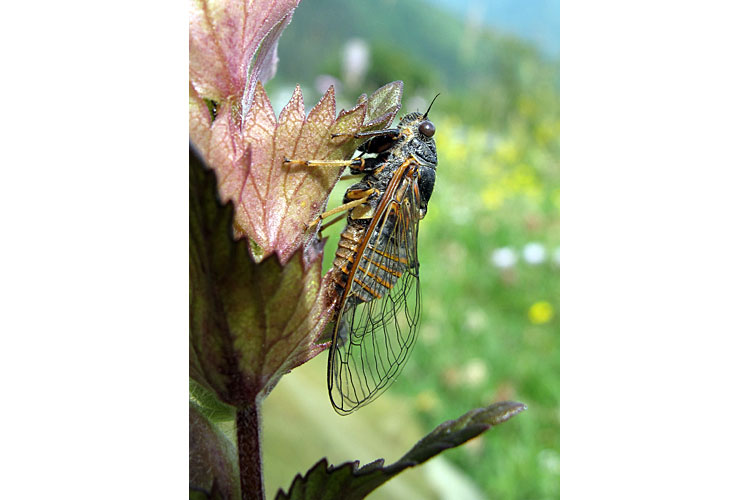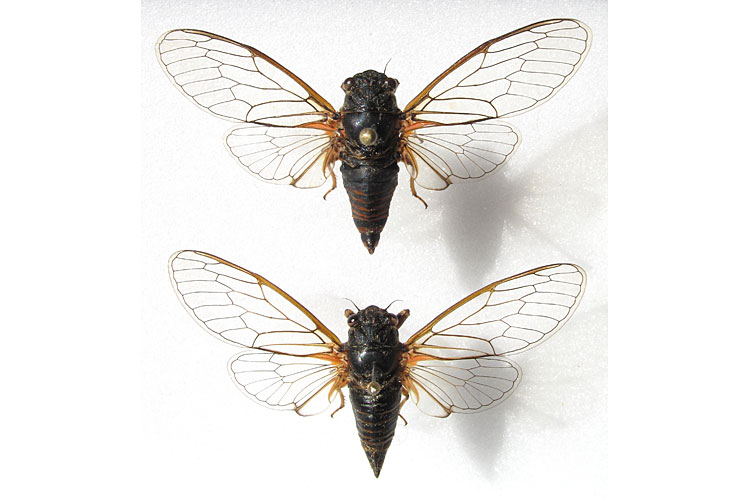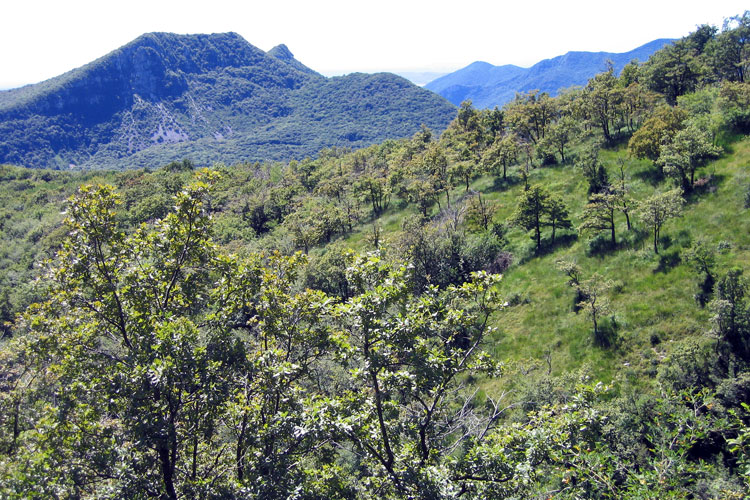New Cicada Species Discovered in Switzerland and Italy
They belong to the best-known, biggest and loudest group of insects – and yet they still manage to surprise: Researchers at the University of Basel have discovered a new singing cicada species in Italy and southern Switzerland. The insect with a wingspan of four centimeters and a high pitch song has been named “Italian Mountain Cicada” (Cicadetta sibillae). It is one of only ten singing cicada species in Switzerland.
24 February 2015
With very few distinct morphological characteristics the different species of the Mountain Cicada – a subgroup within the family of the singing cicada – are not easily identified. What ultimately gave away the new species was its song: a complicated pattern where slow phrases alternate with fast and rhythmic ones. For their findings, the researchers analyzed the insects' genes, morphology, and first and foremost their songs. PhD student Thomas Hertach and Prof. Peter Nagel from the research group biogeography at the University of Basel and their colleagues in Slovenia and the U.S. have published their results in the journal Zoological Journal of the Linnean Society.
The preferred habitats of the newly discovered Mountain Cicada are sparse, warm deciduous forests and poor grassland with lots of bushes. Sitting in shrubs or on the grass, the insects sing their songs and feed off plant sap. “In the Northern Apennine, Cicadetta sibillae is surprisingly the most common singing cicada found”, says Thomas Hertach, who discovered the new species.
Endangered in southern Switzerland
The distribution areas of the “Italian Mountain Cicada” range from Naples to southern Switzerland; where around a dozen populations live in the region of Ticino and two very small groups in an area called Misox (canton of Grisons). The Ticino population in Monte San Giorgio is one of the richest in individuals across the Alps. In contrast, the species in the canton of Grisons is in danger of extinction. First measures to protect the species are in planning together with the canton and the organization Pro Natura.
The researchers estimate that the new cicada species evolved at least one million years ago during the glacial period and has its origin in mild Italian refugia. All examinations show that the species differs from a closely related species in the Pyrenees from which it lives more than 450 kilometers away. “Because the differences are so small, we had to collect and analyze extensive data material”, says Thomas Hertach, who has dedicated more than a decade to the study of cicadas.
Singing attracts females
Singing cicadas make sounds with a paired set of organs called timbals at the base of their abdomen. Abdominal muscles contract the timbals. Part of the abdomen is hollow and acts as a sound box. Male cicadas use songs to attract females. Each species has its own typical song pattern. The Swiss scientist Johann Jacob Bremi already in 1849 described some varying songs of Mountain Cicadas. Unfortunately, his knowledge was long forgotten: Only recently, beginning in 2000, have acoustic studies revealed that the former European Mountain Cicada is actually a complex of many species.
Original source
Hertach T, Trilar T, Wade EJ, Simon C, Nagel P, 2015.
Songs, genetics, and morphology: revealing the taxonomic units in the European Cicadetta cerdaniensis cicada group, with a description of new taxa (Hemiptera: Cicadidae).
Zoological Journal of the Linnean Society 173(2): 320-351, Append. S1-3; DOI: 10.1111/zoj.12212
Further information
Thomas Hertach, University of Basel, Biogeography, Tel. 078 684 95 73, Email: thomas.hertach@unibas.ch





